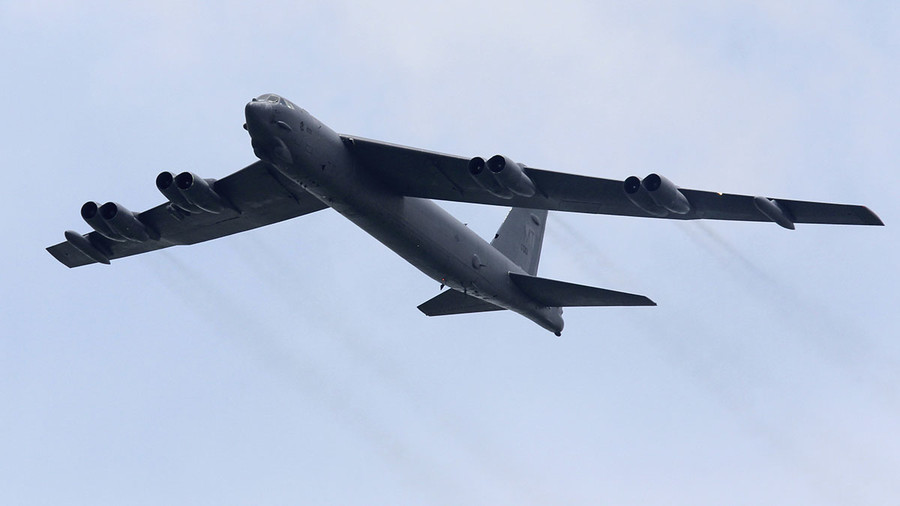A powerful U.S. B-52 bomber flew low over South Korea on Sunday, a clear show of force from the United States as a Cold War-style standoff deepened between its ally Seoul and North Korea following Pyongyang’s fourth nuclear test.
 A powerful U.S. B-52 bomber flew low over South Korea on Sunday, a clear show of force from the United States as a Cold War-style standoff deepened between its ally Seoul and North Korea following Pyongyang's fourth nuclear test.
A powerful U.S. B-52 bomber flew low over South Korea on Sunday, a clear show of force from the United States as a Cold War-style standoff deepened between its ally Seoul and North Korea following Pyongyang's fourth nuclear test.
North Korea will read the fly-over of a bomber capable of delivering nuclear weapons -- seen by an Associated Press photographer at Osan Air Base near Seoul -- as a threat. Any hint of America's nuclear power enrages Pyongyang, which links its own pursuit of atomic weapons to what it sees as past nuclear-backed moves by the United States to topple its authoritarian government.
The B-52 was joined by South Korean F-15 and U.S. F-16 fighters and returned to its base in Guam after the flight, the U.S. military said.
"This was a demonstration of the ironclad U.S. commitment to our allies in South Korea, in Japan, and to the defense of the American homeland," said Adm. Harry B. Harris Jr., commander U.S. Pacific Command, in a statement. "North Korea's nuclear test is a blatant violation of its international obligations."
The B-52 flight follows a victory tour by North Korean leader Kim Jong Un to celebrate the country's widely disputed claim of a hydrogen bomb test. Kim is seeking to rally pride in an explosion viewed with outrage by much of the world and to boost his domestic political goals.
There was no immediate reaction from North Korea's state media to the B-52 fly-over, which also happened after North Korea's third nuclear test in 2013.
Kim's first public comments about last week's test came in a visit to the country's military headquarters, where he called the explosion "a self-defensive step" meant to protect the region "from the danger of nuclear war caused by the U.S.-led imperialists," according to a dispatch Sunday from state-run Korean Central News Agency.